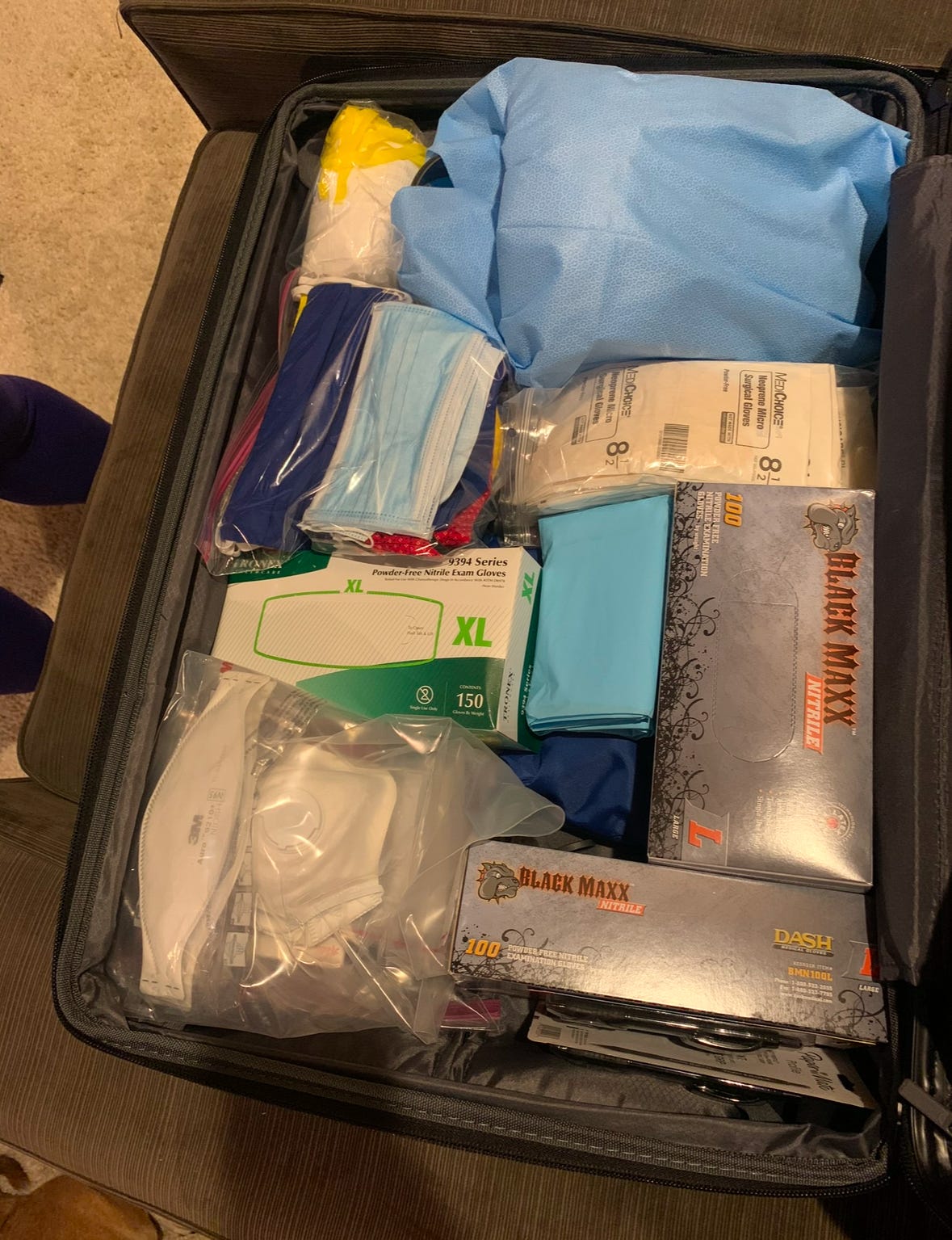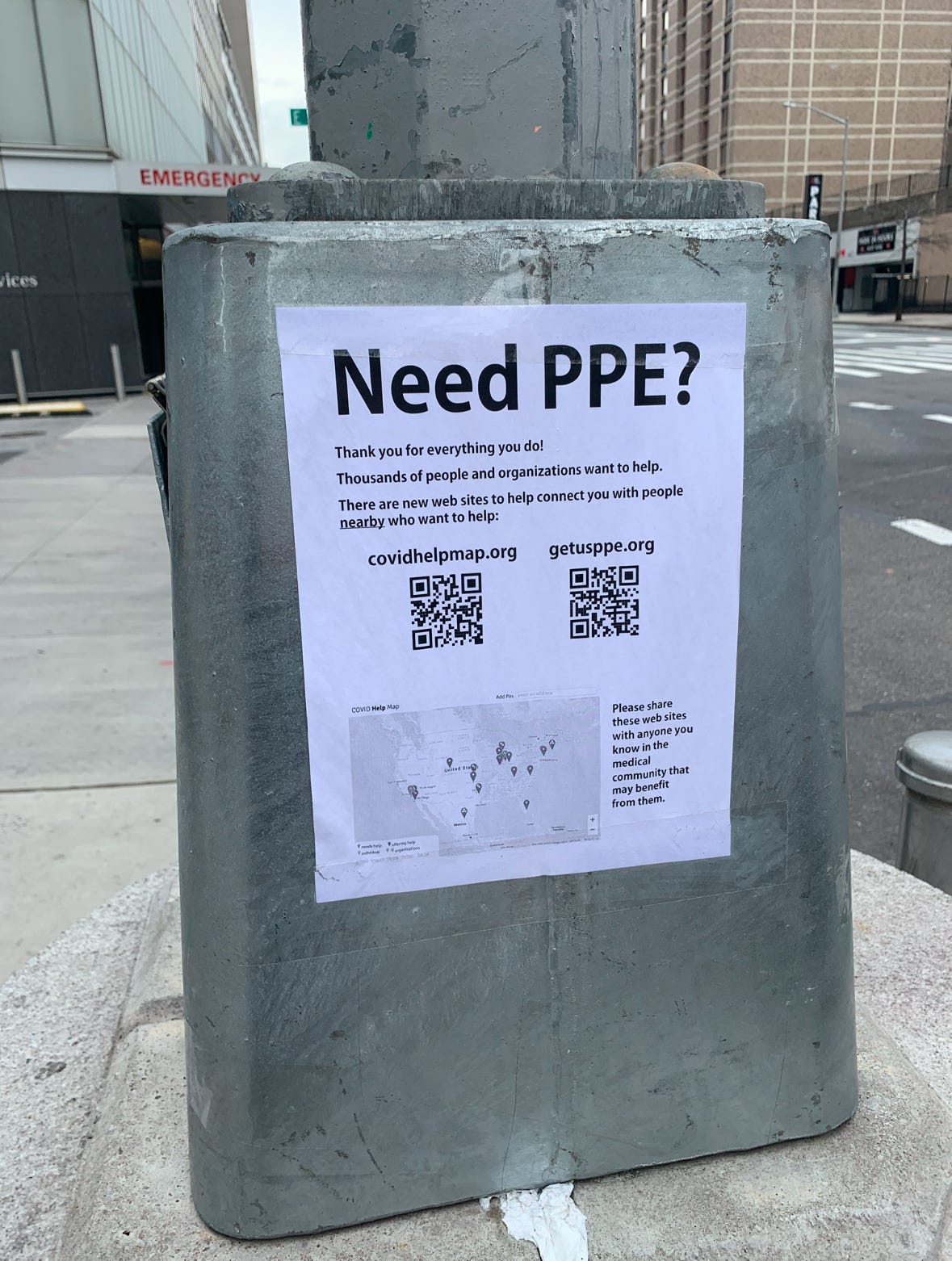Trump, Kennedy, and the Senate Confirmation Hearing
Future pandemic preparedness should be the focus of the RFK Jr. senate confirmation.
When Donald Trump faced the biggest challenge of his presidency, the coronavirus pandemic, he failed us. The country was not prepared; the economy shut down, and by the time Trump left office, per CDC numbers, an American died every 28 seconds from the virus. Trump’s appointment of Robert Kennedy Jr. for Secretary of Health and Human Services sets us up for future failures. The probability of another pandemic is very real. This likelihood, along with Trump’s mismanagement of the virus and Kennedy’s questionable views on healthcare, must be the nucleus of his confirmation hearing.
During my time as a COVID ICU nurse, the president-elect’s ill-preparedness and recklessness in response to the pandemic directly affected my colleagues and me. As we enter another Trump presidency, I am plagued with anxieties surrounding future public health crises. Of concern is our preparedness as it relates to medical equipment, testing supplies, and ICU beds. The logistics will all be at the mercy of a supply chain made tenuous by Trump’s proposed tariffs and our deteriorating trade relationship with China. The blind loyalty Trump demands mean RFK Jr.’s co-signing his proposed removal of career civil servants in the FDA, NIH, and CDC. This act would be catastrophic to the public health care infrastructure. Kennedy Jr.’s controversial opinions surrounding vaccines are both inaccurate and will be a barrier to future vaccine development. Senate Democrats and Republicans must demand clear answers to such matters to keep the American people safe; something Trump failed to do in 2020.
From the pandemic’s onset, it was clear to frontline workers the supply chains were not prepared, as evidenced by severe shortages of healthcare equipment. These shortages caused gowns, gloves, masks, and other personal protective equipment (PPE) to be rationed or just not available. As a nurse in New York City, I experienced this daily. PPE that had been, as dictated by the Joint Commission and health code standards, single use-single patient, were now used repeatedly for weeks. Hospitals appointed “PPE Czars” to monitor use and distribution. Staff used Garbage bags as protective gowns. N-95 respirators soaked in weeks of sweat became rancid as they sat in brown paper bags between shifts. I heard the warnings of equipment shortages prior to responding to the pandemic. This prompted donations from friends and colleagues of their own PPE. I landed in Manhattan with a full suitcase of masks, gloves, face shields, etc.
Suitcase of donated PPE I took to NYC. March, 2020.
My arrival to what had become the epicenter of the American outbreak, NYC, the situation proved to be just as grave as medical workers on the frontline reported. Patients were in dire need of ventilators in makeshift COVID ICUs. President Trump, unsympathetic to these needs, said on March 26, 2020, that he did not believe hospitals needed the ventilators because “you go into major hospitals sometimes, and they’ll have two ventilators.” During my first shift working on a COVID ICU, I had three patients on ventilators under my care alone. Hundreds of ventilators were in use hospital wide. The FDA, the regulatory body for medical device products in the US, testified before Congress in November 2024. This testimony revealed “the United States remains vulnerable” and they had identified “numerous gaps” in the supply chain that will require addressing if improvements are to be made in future pandemics. Given Trump’s prior neglect, this vulnerability in the supply chain will remain unaddressed.
PPE Poster in Manhattan. April, 2020.
At this moment those working at the FDA, along with those at the NIH and CDC, are not only concerned about future pandemics but keeping their jobs. Creating staffing chaos and leadership disruptions within these agencies will have consequences for the country. Trump attempted, by executive order, to remove civil service protections in October 2020 and promises to do so again. This is something Kennedy supports. In an October 2024 social media post, RFK Jr. told staff at the FDA to “get ready to pack your bags.” Kennedy made similar threats towards staff at NIH. While speaking at an event in Arizona in November 2024, he said he will fire 600 employees at NIH on Trump’s first day in office. A year earlier, in a speech to an anti-vaccine group, Kennedy outlined another goal for NIH: to refocus the research on chronic diseases and “give infectious disease a break for about eight years.” The CDC has been in Kennedy’s crosshairs for years. At a conference on autism in 2019, he told the audience, the CDC’s vaccine division is a “fascist undertaking” and compared it to the sexual abuse scandal of the Catholic Church.
Kennedy’s main healthcare focus has been his critical, yet unfounded beliefs, on vaccines. The HHS appointee has made claims that vaccines cause autism. Research shows they do not. Kennedy has claimed “there is no vaccine, you know, that is safe and effective.” Estimates, per a May 2024 study published in the medical journal, The Lancet, state vaccinations have saved 154 million lives in the last 50 years. Would RFK Jr. have supported the coronavirus vaccines to be given to the public, or would he have tried to slow or block the process? Only after enough people received their vaccination in 2021 did infections and deaths decline. How many additional deaths would there have been with a slowing of vaccine development?
Keeping the American people safe from disease is an essential duty of the President of the United States. President Barack Obama and National Security Advisor, Susan Rice, understood this. In 2015, the Global Health Security and Biodefense Unit housed within the NSC was created in response to the Ebola epidemic of 2014. Only two people contracted Ebola in the US, both were nurses, both survived. President Trump dissolved this team in May 2018. During the pandemic that began under Trump’s watch, over 1.2 million Americans died from the virus. In 2022, the Biden administration created the Office of Pandemic Preparedness and Response Policy to prepare and respond to existing and emerging threats. During an April 2024 interview with Time Magazine, interviewers asked Trump if he would disband Biden’s new pandemic response office as he had dismantled Obama’s in 2018; he responded, “Yeah, I think I would.”
Keeping the American people safe in the event of future pandemics is now in the hands of the senate. Trump has demonstrated an unwillingness to learn from his past failures. Kennedy has displayed a belief system not backed by research. 2024 has shown with outbreaks of mpox, the Marburg virus, cholera, dengue fever, and avian influenza, another pandemic could happen. The American people deserve a future government response that is parallel to the direct care they receive from healthcare professionals. Let us use the recent pandemic not just as a study of the past but also as a map to the future. The direction we take will be determined by the hearings.





